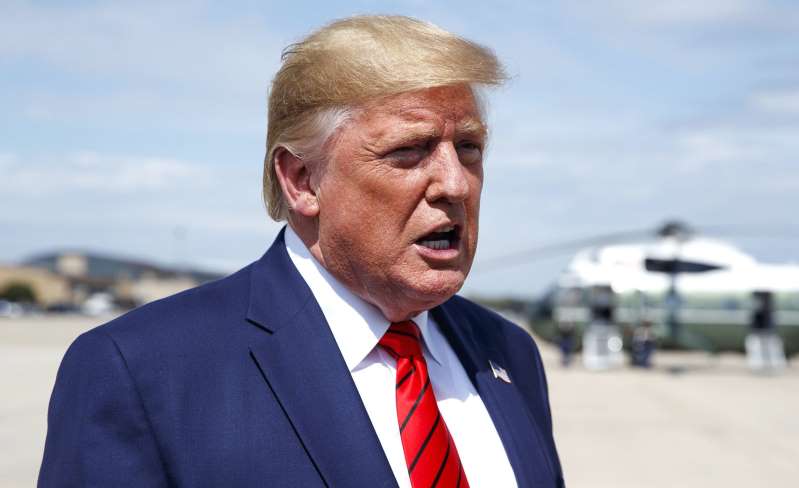By Jerry Dunleavy, Washington Examiner–
The inspector general who oversees the nation’s intelligence groups defended its handling of the Ukraine whistleblower complaint, stating on Monday that the whistleblower submitted the proper form and reiterating the complaint was urgent and credible.
“The whistleblower submitted the appropriate Disclosure of Urgent Concern form that was in effect as of August 12, 2019, and had been used by the ICIG since May 24, 2018,” the inspector general’s office wrote.
The rare four-page watchdog statement on Monday responded to questions from Republican senators Monday prompted by claims from conservative media last week that the watchdog had secretly changed its whistleblower requirements to remove the need for firsthand knowledge to file a complaint and introduced a new form ahead of the Ukraine whistleblower’s filing.
The inspector general’s office said the form the whistleblower used is the same as the office has had since May 24, 2018, noting that it went into effect just a few days after Inspector General Michael Atkinson took over, saying, “although the form requests information about whether the complainant possesses first-hand knowledge about the matter about which he or she is lodging the complaint, there is no such requirement set forth in the statute” and noted that, under the governing Intelligence Community Whistleblower Protection Act, anyone in the intelligence community who wants to report an urgent concern “need not possess first-hand information in order to file a complaint or information with respect to an urgent concern.”
Since Atkinson took over in May 2018, his office has not rejected the filing of any alleged urgent concern due to a whistleblower’s lack of first-hand knowledge of the allegations, according to the statement.
The Intelligence Community watchdog’s office revealed that the whistleblower checked two boxes on their August complaint: “I have personal and/or direct knowledge of events or records involved” and “other employees have told me about events or records involved.” The inspector general determined that the whistleblower’s letter, which contained a classified appendix, included direct knowledge of certain alleged conduct as well as second-hand information and that the whistleblower has subject matter expertise related to the allegations, rejecting the idea that the whistleblower could “provide nothing more than second-hand or unsubstantiated assertions.”
The inspector general’s office also said the whistleblower followed the law in filing the complaint and that the inspector general followed the law in providing the information to the acting director of national intelligence on Aug. 26.
The statement notes some of the whistleblower forms suggested that firsthand knowledge was necessary, and in the process of clarifying those forms and in response to media inquiries about the Ukraine whistleblower, the inspector general “understood that certain language in those forms and, more specifically, the informational materials accompanying the forms, could be read – incorrectly – as suggesting that whistleblowers must possess first-hand information in order to file an urgent concern complaint with the congressional intelligence committees.” That’s why the inspector general’s office uploaded three new forms with language more accurately reflecting the law to their website in recent weeks.
The notes on a July 25 presidential phone call, released Wednesday morning, show President Trump asked Ukrainian President Volodymyr Zelensky about investigating a matter related to Joe Biden, who is now the leading Democratic candidate for president. The disclosure of the call transcript happened one day before the whistleblower complaint was declassified and made public.
On the call, Trump asked for Ukraine’s help in investigating a conspiracy theory related to the cybersecurity firm CrowdStrike, which determined the Russians hacked the Democratic National Committee’s email systems. Trump urged the Ukrainian leader to look into whether there was any Ukrainian involvement in the 2016 election and suggested that the Ukrainians investigate allegations of corruption related to 2020 Democrat Joe Biden and his son, Hunter Biden. Trump urged Zelensky to speak with his personal lawyer Rudy Giuliani and Attorney General William Barr about this, though the Justice Department denies Barr has spoken with anyone in Ukraine.
Giuliani has spent months urging Ukraine to investigate possible Ukrainian election interference and the Bidens, and he was subpoenaed by Congress on Monday.


Leave A Comment
You must be logged in to post a comment.